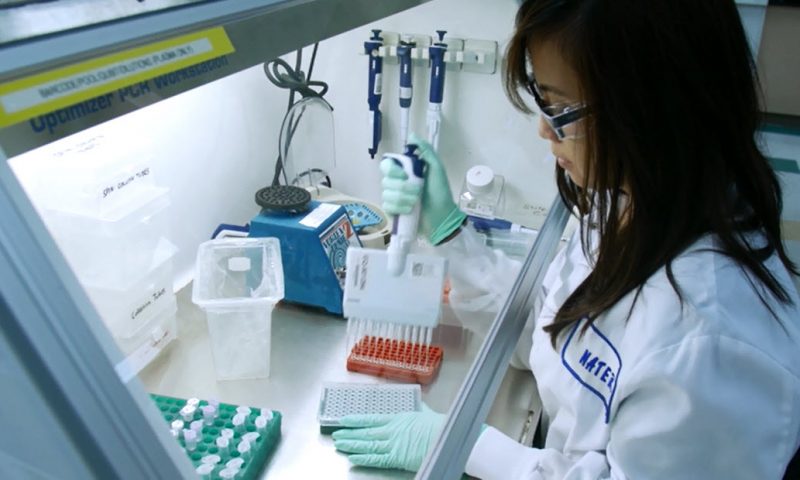Natera Inc. (NTRA) had a good day on the market for Friday October 04 as shares jumped 5.69% to close at $35.47. About 886,047 shares traded hands on 9,709 trades for the day, compared with an average daily volume of n/a shares out of a total float of 70.13 million. After opening the trading day at $33.76, shares of Natera Inc. stayed within a range of $36.37 to $33.40.
With today’s gains, Natera Inc. now has a market cap of $2.49 billion. Shares of Natera Inc. have been trading within a range of $36.52 and $11.08 over the last year, and it had a 50-day SMA of $n/a and a 200-day SMA of $n/a.
Natera Inc is operative in the healthcare field in the United States. Its core business is to offer invasive and other means of diagnosing genetic features of a fetus. Natera’s array of diagnostic services include Panorama Non-Invasive Prenatal Test that screens for chromosomal abnormalities of a fetus with a blood draw from the mother; Anora Products of Conception (POC) test to analyze fetal chromosomes to understand the cause of miscarriage, and Non-Invasive Paternity Testing (PAT), to determine paternity by studying the fragments of fetal deoxyribonucleic acid (DNA) in a pregnant mother’s blood and a blood sample from the alleged father. The Company acquires its revenue by billing an insurance carrier, a clinic or a patient for the test upon delivery of the test result.
Natera Inc. is based out of San Carlos, CA and has some 975 employees. Its CEO is Steven Leonard Chapman.
Natera Inc. is also a component of the Russell 2000. The Russell 2000 is one of the leading indices tracking small-cap companies in the United States. It’s maintained by Russell Investments, an industry leader in creating and maintaining indices, and consists of the smallest 2000 stocks from the broader Russell 3000 index.
Russell’s indices differ from traditional indices like the Dow Jones Industrial Average (DJIA) or S&P 500, whose members are selected by committee, because they base membership entirely on an objective, rules based methodology. The 3,000 largest companies by market cap make up the Russell 3000, with the 2,000 smaller companies making up the Russell 2000. It’s a simple approach that gives a broad, unbiased look at the small-cap market as a whole.

